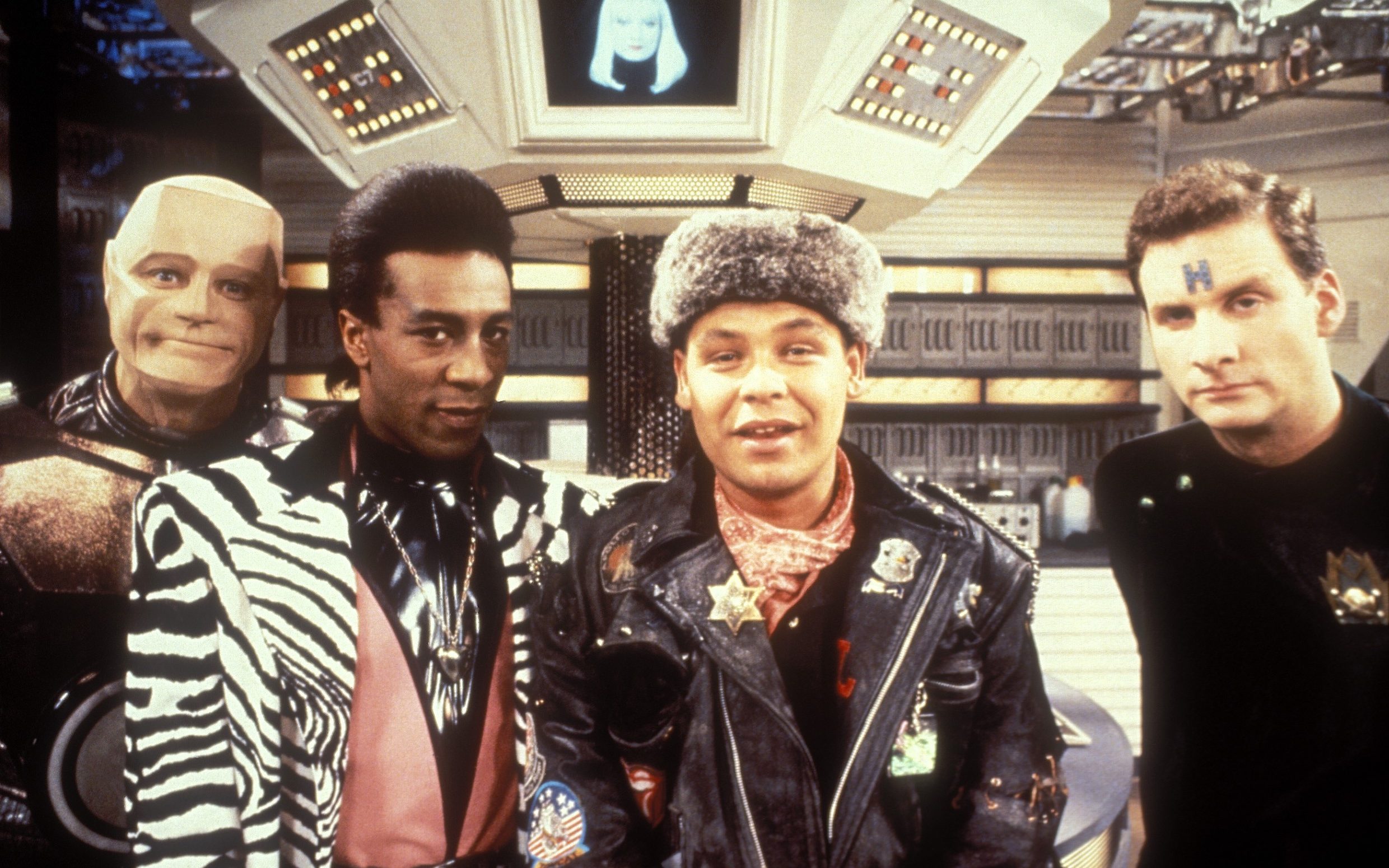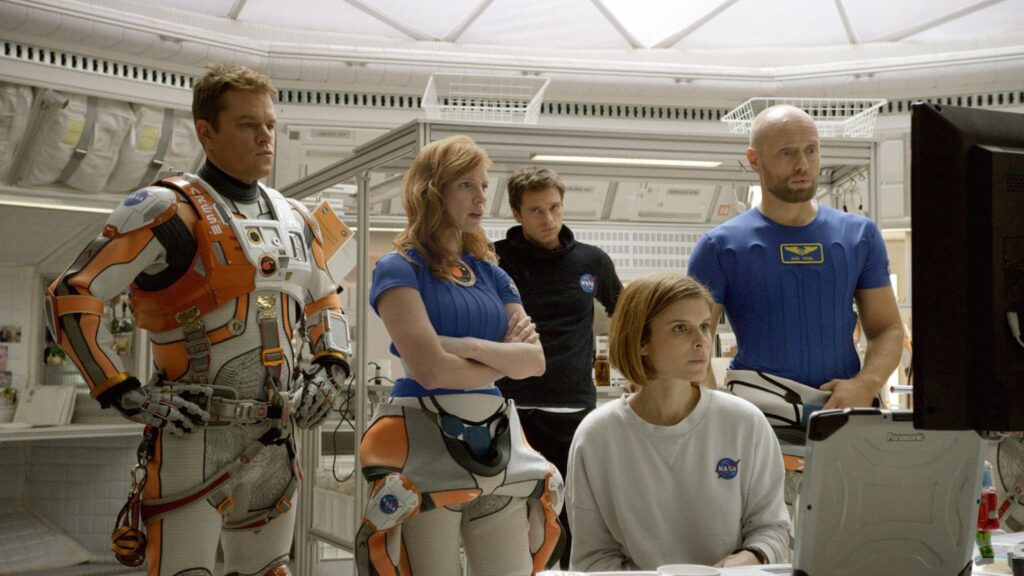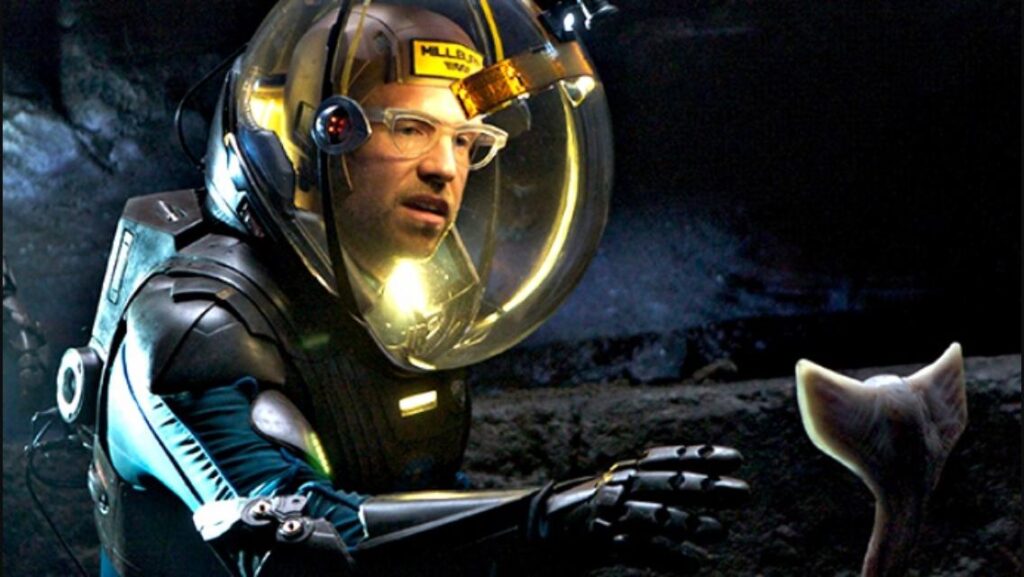
Why I Can’t Write Competence Porn
- Uncategorized
- September 20, 2021
Fermi’s Progress is, more than anything I’ve written, me having fun. It is all The Good Bit, it is me, sitting there industriously shovelling a full tub of Ben & Jerry’s Netflix and Chill into my face, leaving my vegetables well and truly on the side of the plate.
I wanted to write stories where the alien planet was the star, I wanted a spaceship whose tech was closer to the Icarus II, Discovery, Hermes or Europa One than they were to the Enterprise or Millennium Falcon. I wanted to write small, self-contained stories where the board was wiped clean like an etch-a-sketch when I was done, ready for the next story.
Of course, I had more success in some of these areas than others. While each instalment of Fermi’s Progress works (I think) as a stand-alone tale, they come together to form the biggest, most epic thing I’ve ever written.
And then there’s the other way Fermi’s Progress didn’t quite turn out the way I envisioned, because originally I had intended Fermi to be competence porn.
What is Competence Porn?

Competence Porn, much like more conventional kinds of porn, is something that you will know when you see it.
Ridley Scott’s The Martian is an excellent example of competence porn in space- Ridley Scott’s Alien isn’t, aside from Ripley, obviously- Ridley Scott’s Prometheus is a fantastic depiction of everything competence porn is not. Perhaps the ur-example of competence porn is the CSI franchise.
The key is in the name- it isn’t called Genius Porn. House isn’t competence porn, neither is Sherlock. Your maverick who doesn’t play by the rules but always gets results does not give me a competence boner.
Competence Porn isn’t about geniuses, it’s about people who have jobs. People who play by the rules and get results.
And it’s something I want to see more of in space. As my partner will tell you, I will watch literally any old shit if it has a spaceship in. I have, partly as a result of a fever a couple of years ago, partly in secret, seen both seasons of The Orville. Once, during my final year as a single individual, I binged the entire Stargate franchise over the period of a couple of months.

But one thing that will get me to just give up on a series, even if it has a spaceship in, is characters acting like idiots. Netflix has given me not one, but two series like this. Another Life, and Away both feature modern-day-ish set space missions led by women who spend half their screen time feeling sad they left their kid behind (this is a shitty recurring trope that isn’t what I’m writing about today but seriously, stop it. You too Proxima, fuck right off).
More than that, they feature crews that absolutely should not be in space together. In this day and age (and both series are set close enough to that) getting into space is hard. Lots of people want to do it, putting them in space is expensive, and once there the psychological pressures are immense.
This is why NASA, Roscomos and others have done a huge amount of research into group dynamics in isolation.
The Inspiration 4 mission, which at time of writing is buzzing around somewhere beyond the Hubble Telescope, had one member of its crew allegedly picked by lottery, but it just so happens every member of the crew either has or is directly related to someone who has aerospace engineering experience of some kind, and all four of them spent months undergoing rigorous training and, importantly, team building exercises before they got on the ship.
In our world as it is now, there is no way anyone is going to get on a spaceship with anyone if they don’t know how that person will react to pressure or even danger.
You don’t people pointing guns at each other, arguing over who’s in charge, or doing willfully stupid things.
And this was something I had firmly in mind when writing Fermi. Except, if you’ve read Fermi by now, I’m pretty sure you’ll agree it doesn’t feel like competence porn.
Fermi's Competence

Now, in its defence, Fermi’s crew are not actually idiots. Each member of the crew knows their field well. In most situations they are able to cooperate, despite Gordon’s unfortunate predilection for pointing guns at her colleagues.
Even Connor, who really feels like he shouldn’t be in a space opera but a Nick Hornby book where the person he’s dating wants him to grow up and settle down, is generally aware of his surroundings, perceptive, and more capable in a crisis than he thinks he is.
But I think it’s fair to say that the vibe readers got of the Fermi’s crew is closer to Red Dwarf than it is to The Martian, and that isn’t just about humour.
When faced with a challenge, I think the dynamic among the crew resembles “actual literal astronauts” far less than it does “an ill-prepared team of Crystal Maze contestants”. They’re a flying argument, and as I’ve written before, the characters were designed so that there would several different perspectives to look at each situation the Fermi encounters.
I think the reason Fermi doesn’t feel like competence porn is more than “they argue”, though.
Part of it is that the mission is primarily funded and led by Elizabeth Gordon, a social media-charming, stunt performing aerospace and tech tycoon who is extremely legally distinct from any billionaires who have privately funded space missions lately.
In matter of fact, I think Gordon comes across as considerably more competent and aware than any of the three billionaires who could reasonably sue me for libel (I know she’d agree with me). But the point remains that Gordon’s ruthless, almost self-foiling belief in rational self-interest as a higher power, and her absolute certainty that anything outside of cynicism and brutal pragmatism is a lie poor people tell themselves to keep poor, mean she’s not necessarily the best driver of cohesive group dynamics.
So, Gordon is one reason, but another is that, in my adult working life, I’ve never actually encountered “competence” of the kind we’re talking about. Every workplace I’ve been part of, whether it’s been a pub, an arts organisation, a call centre or a publication, the atmosphere has consistently been one of people who are trying to appear competent (even if they’re good at their job) dashing around and trying to solve whatever three crises have decided to happen at once that day, two of which were caused by the person in charge.

And here’s where I get onto even shakier ground, but I think another part of it is to do with being British. That’s a heavily loaded sentence at a time when the government is asking for “distinctively British” TV by law. But I think, in as much as anything can be culturally British, we are instinctively distrustful of competence as a concept. Not just in Gove’s “People are tired of experts” sense. But in that possibly the most famous British military engagement ever committed to verse is about a cavalry unit being sent on a full front assault against a well-prepared artillery battery, by accident. Where the most popularly-known depiction of our involvement in one of the world’s two world wars is about a guy trying to skive off so that his idiot superiors can’t get him killed.
We know, ultimately, that the people in charge are there because they went to the right school because their parents did the same. So, if something seems to be being done competently, somebody, somewhere, is covering something up.
And in space, there’s really not any room to cover things up.
Fermi’s Progress’s final instalment, The Phone Job, is available now at Amazon and Scarlet Ferret. Scarlet Ferret also offer all four parts with their Season Pass, and the entire Fermi’s Progress cycle can be found at Amazon here.





